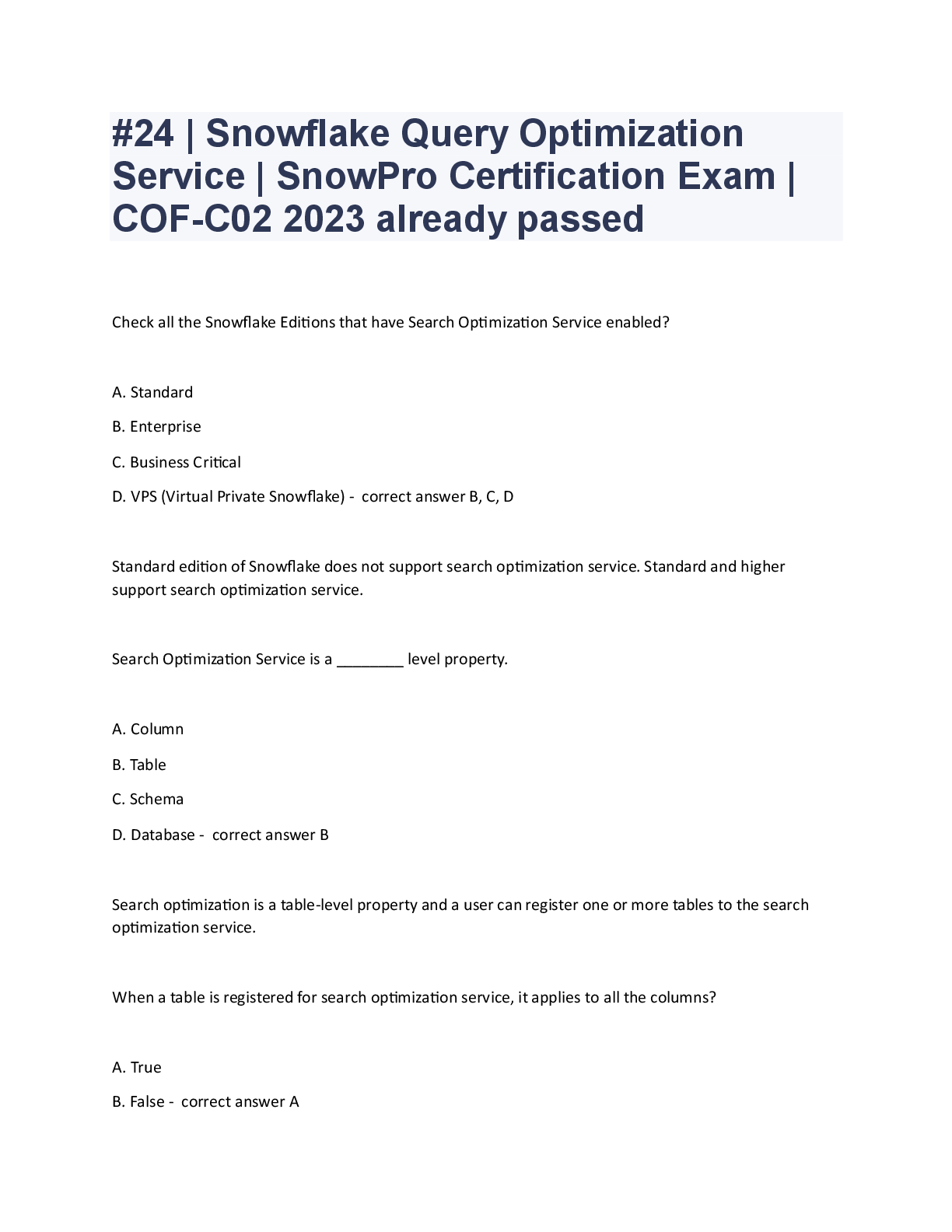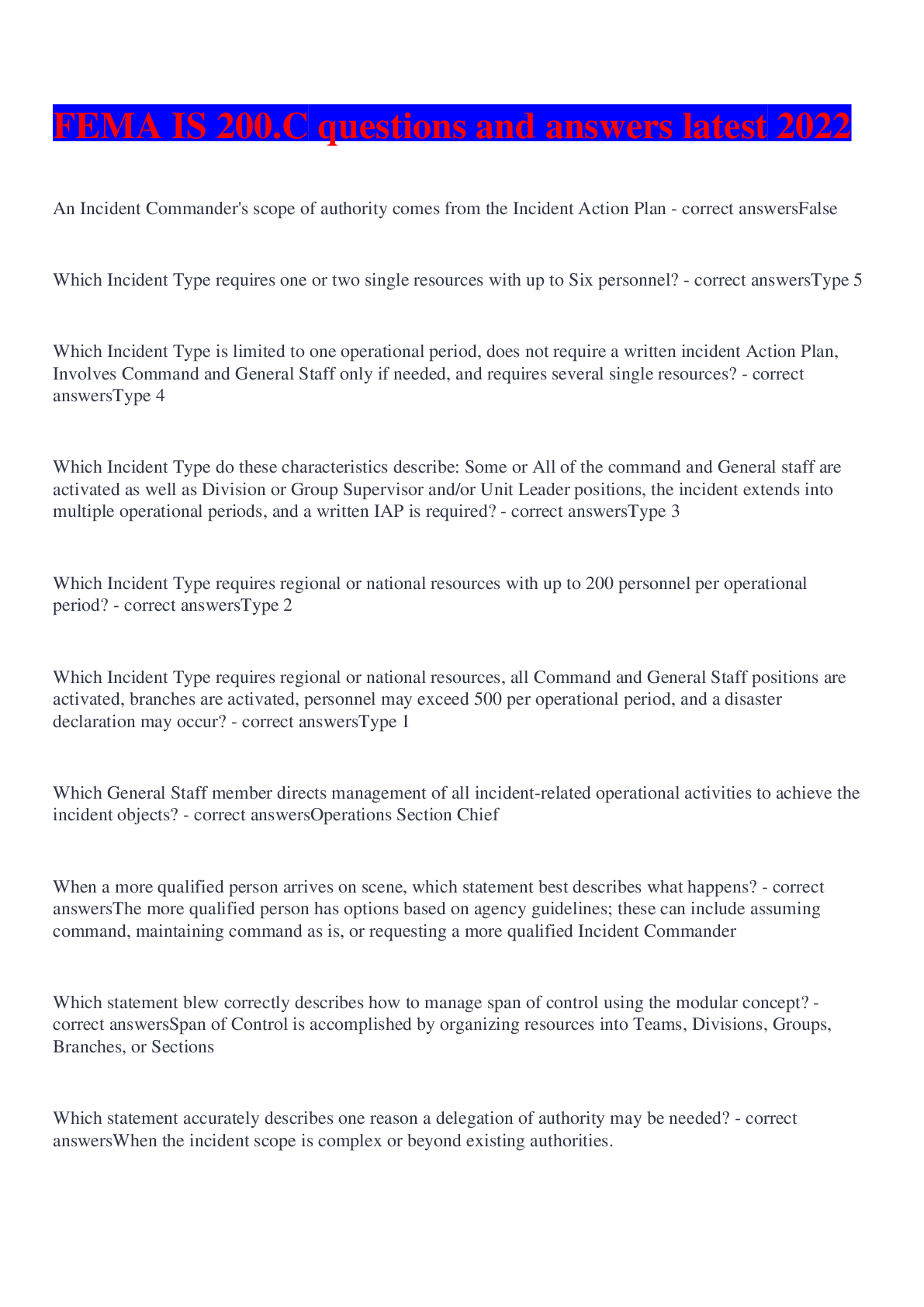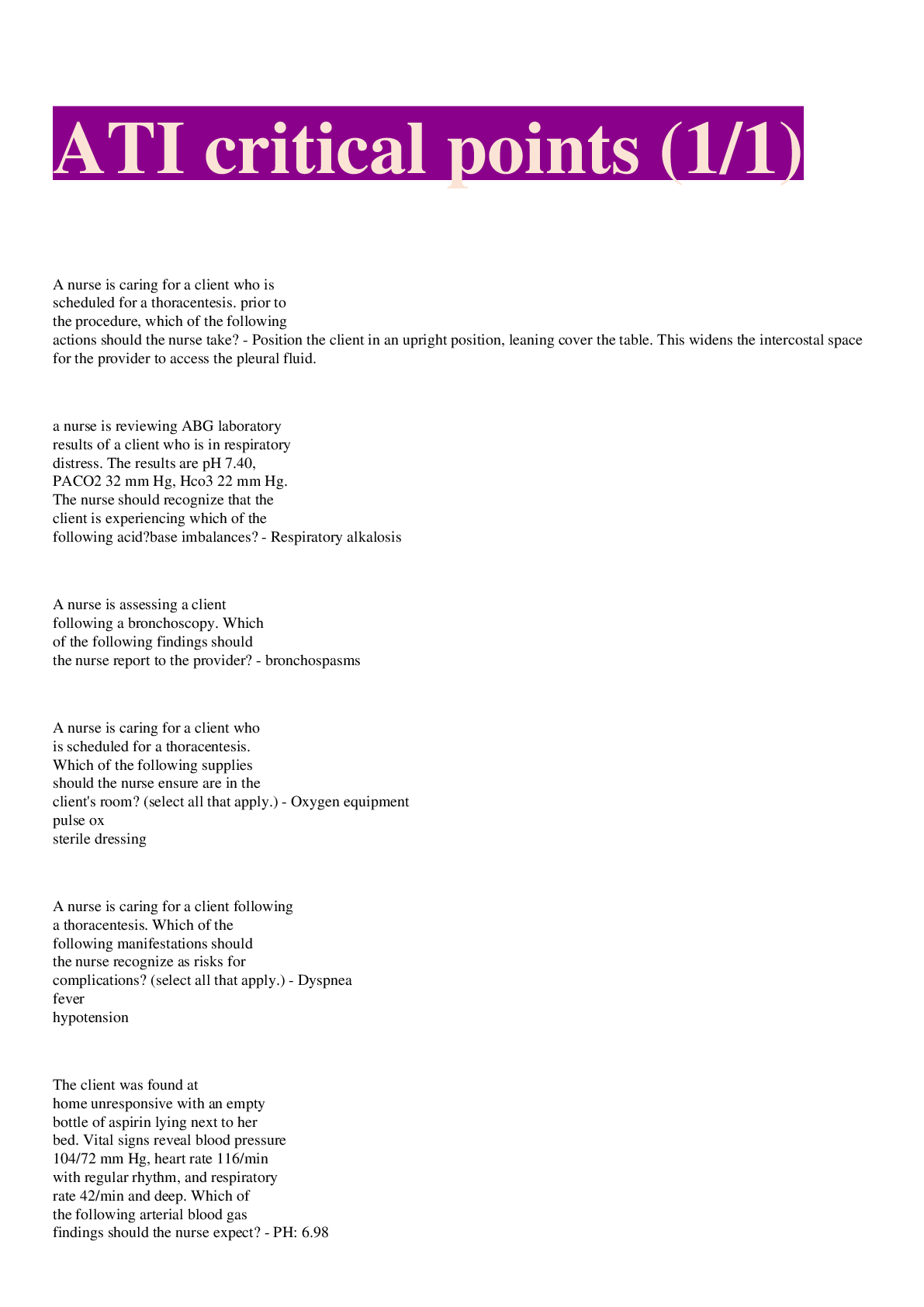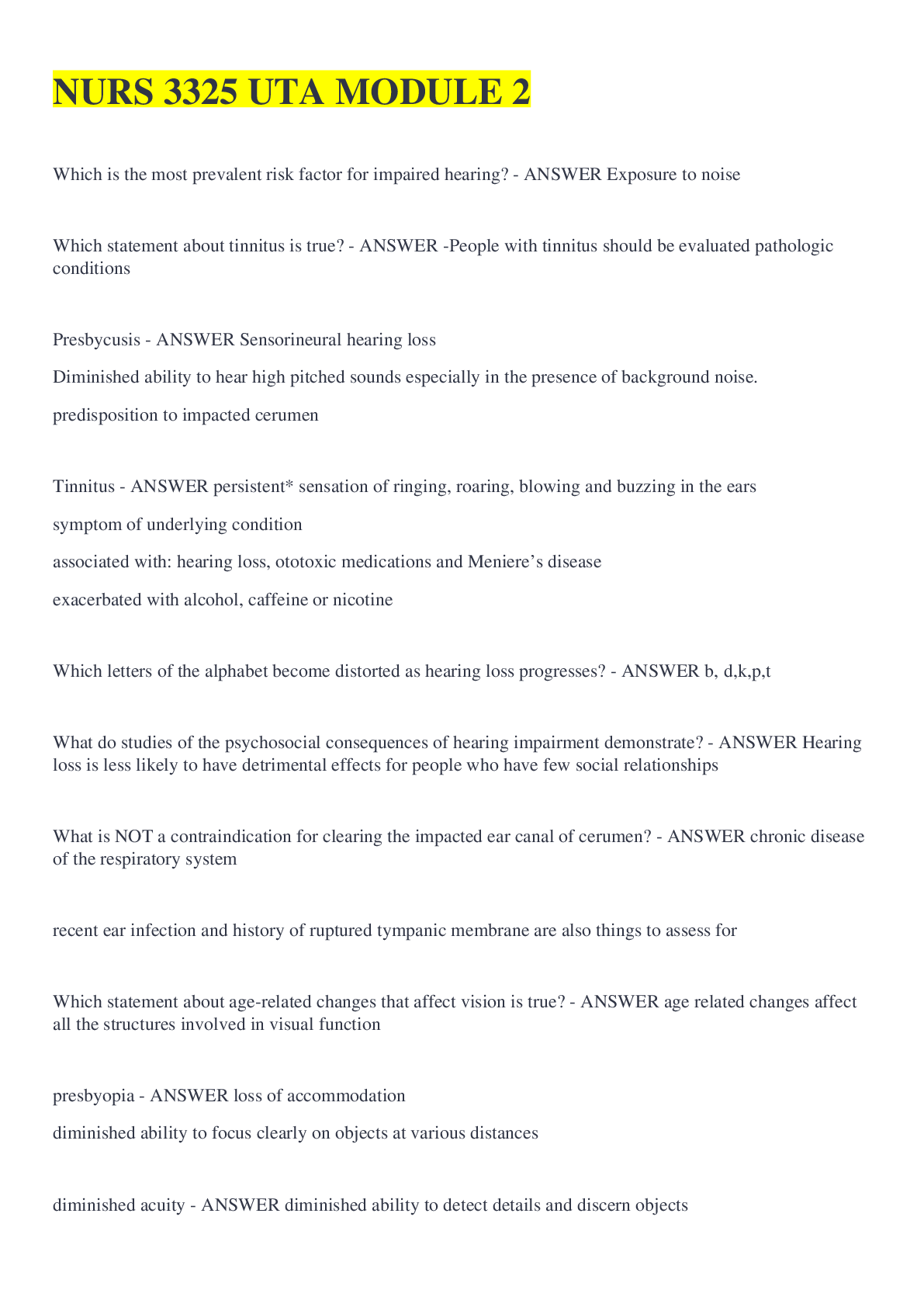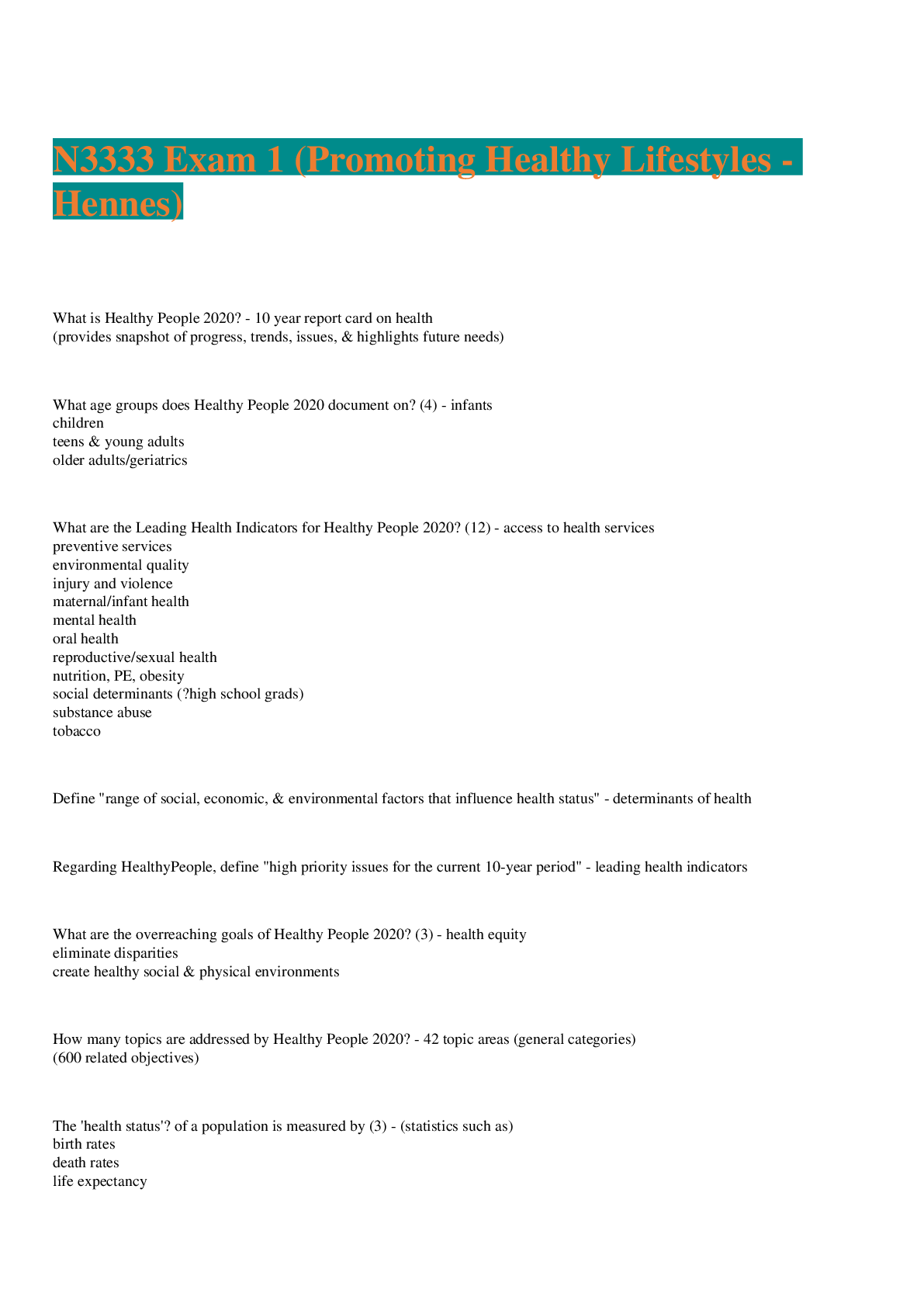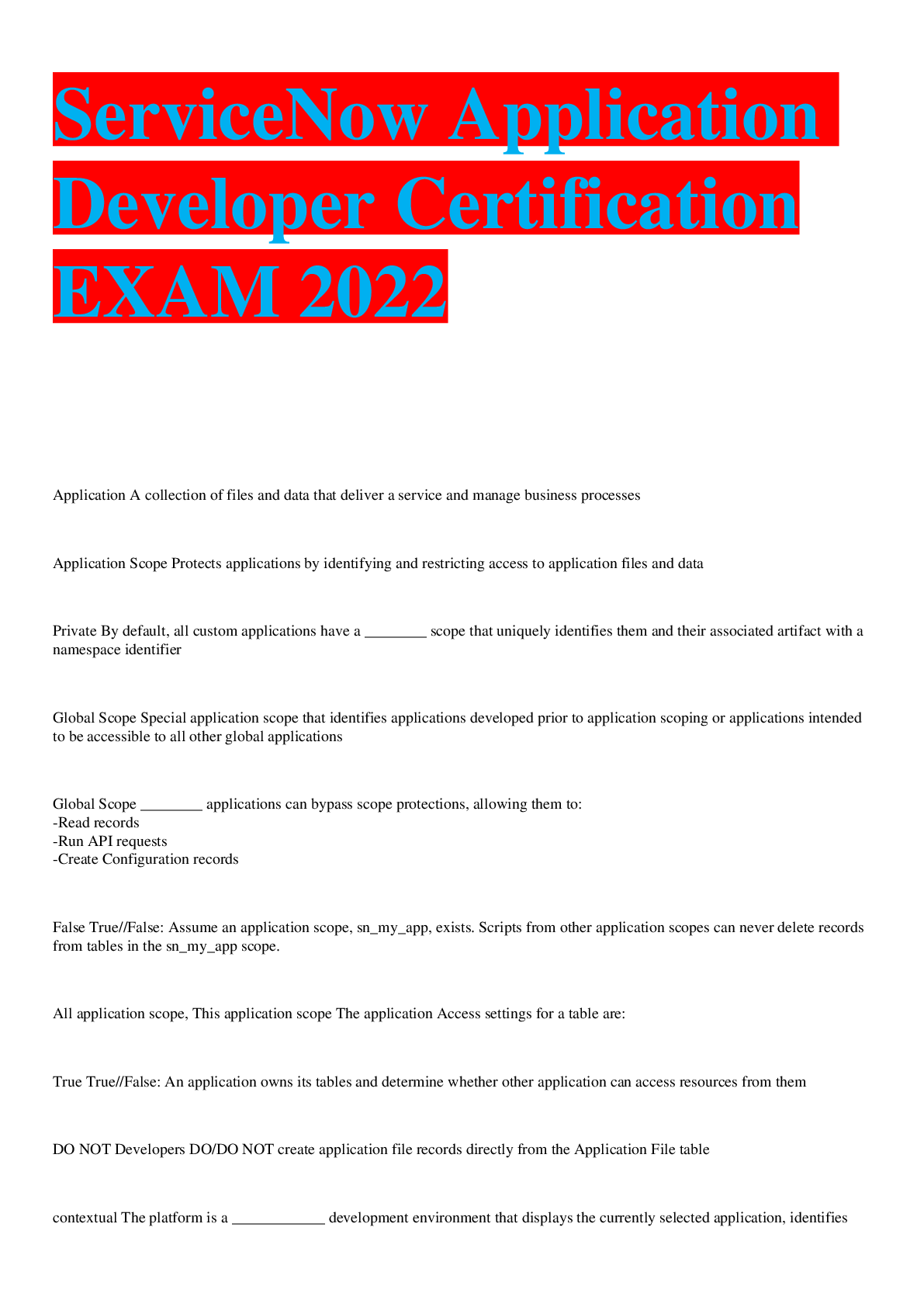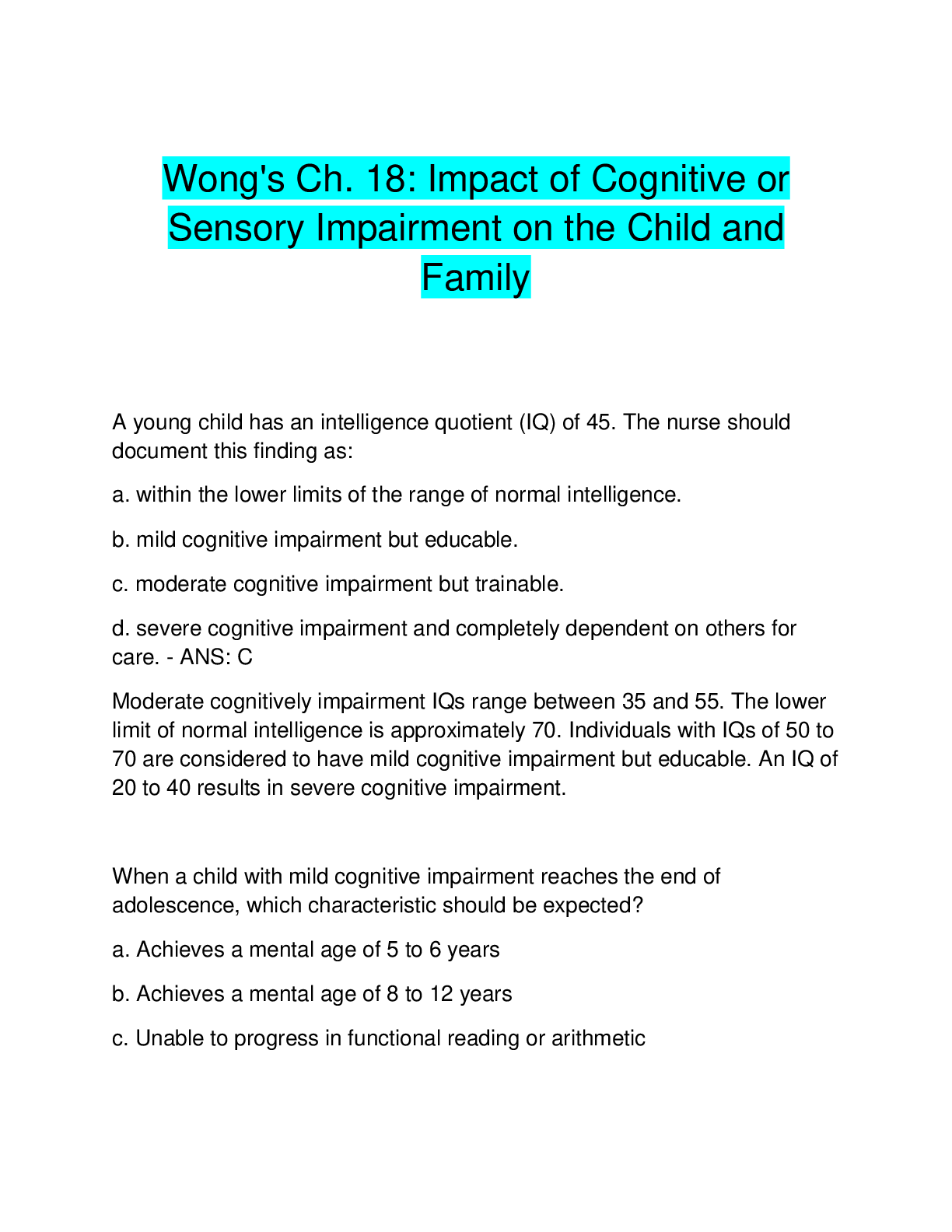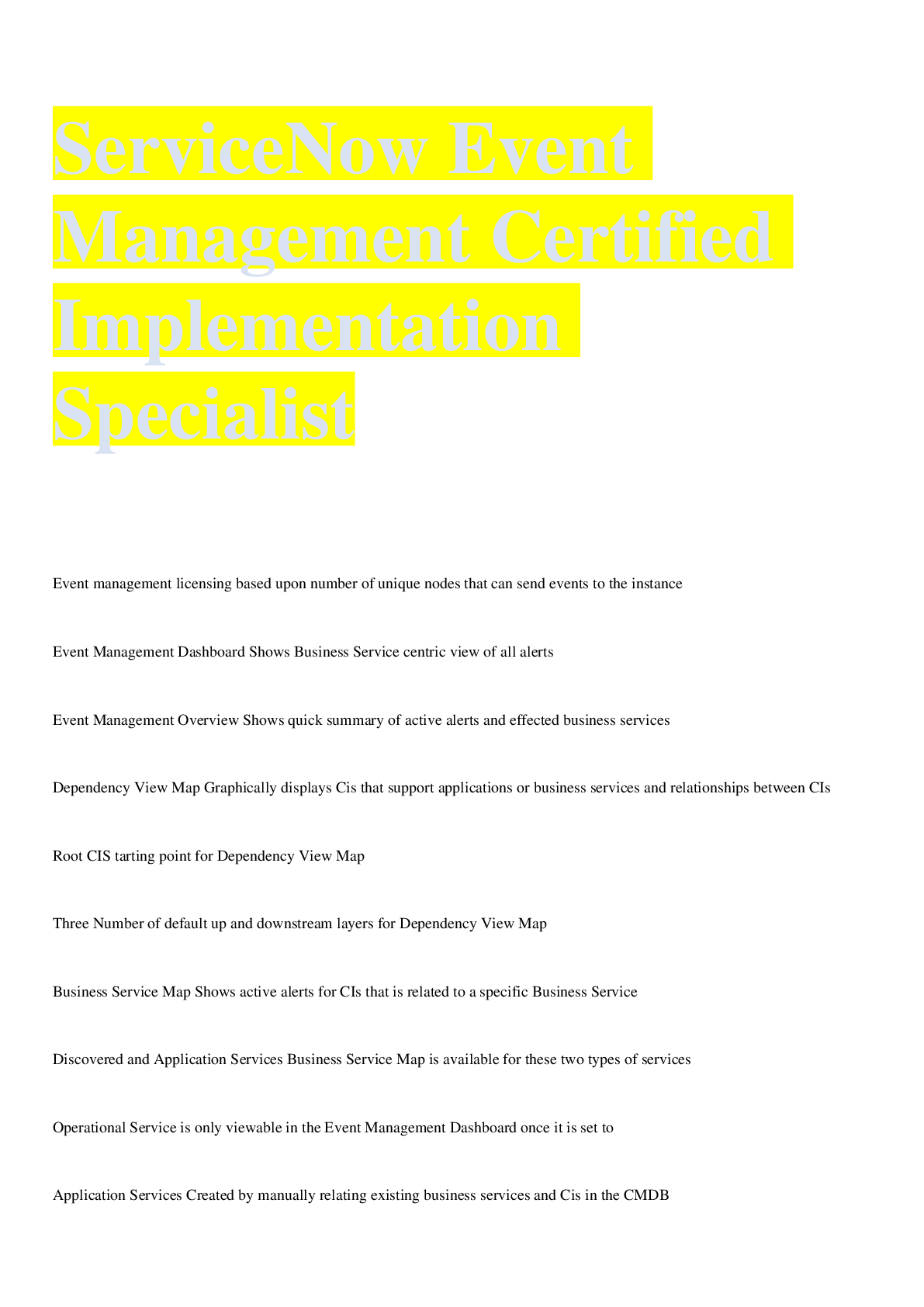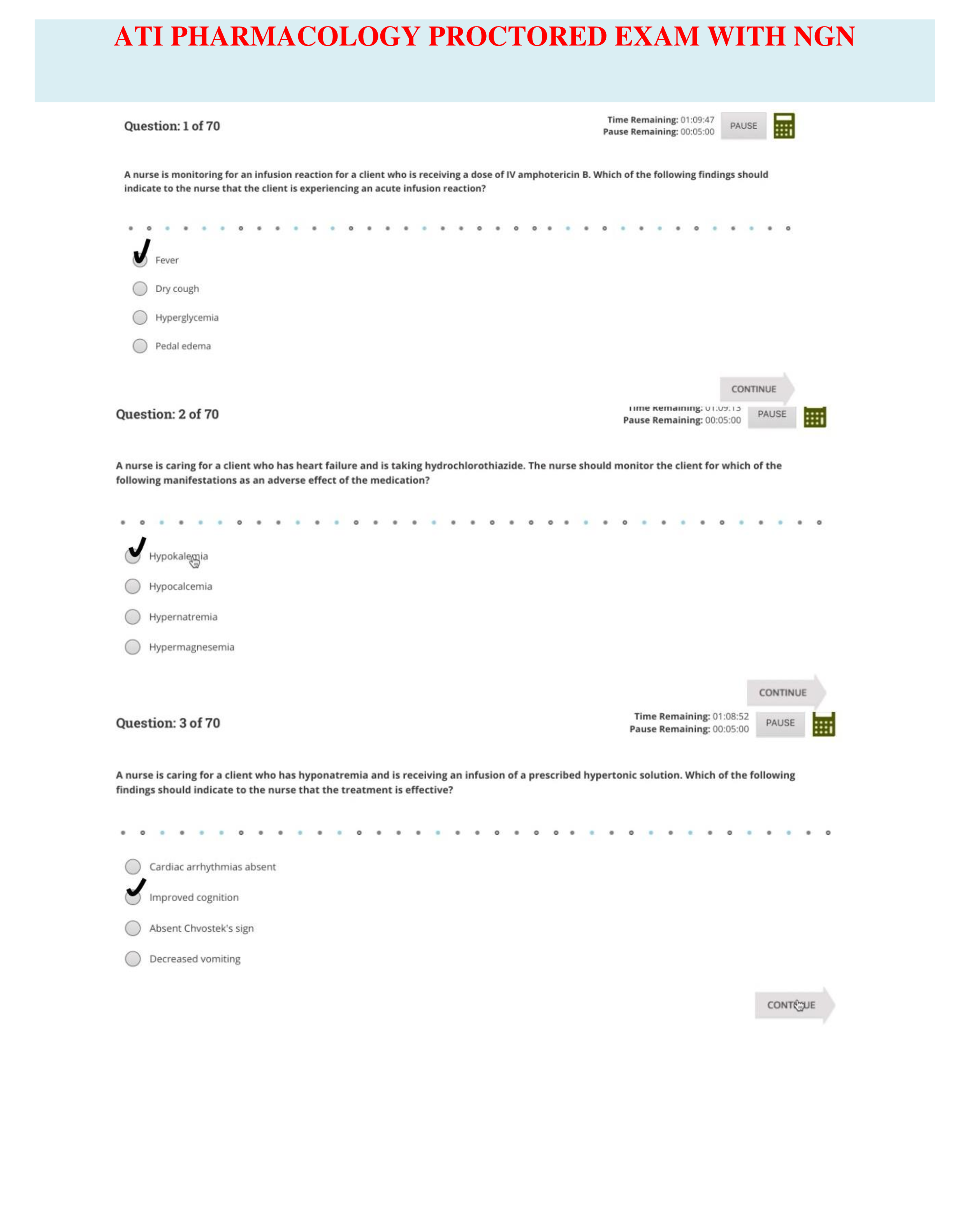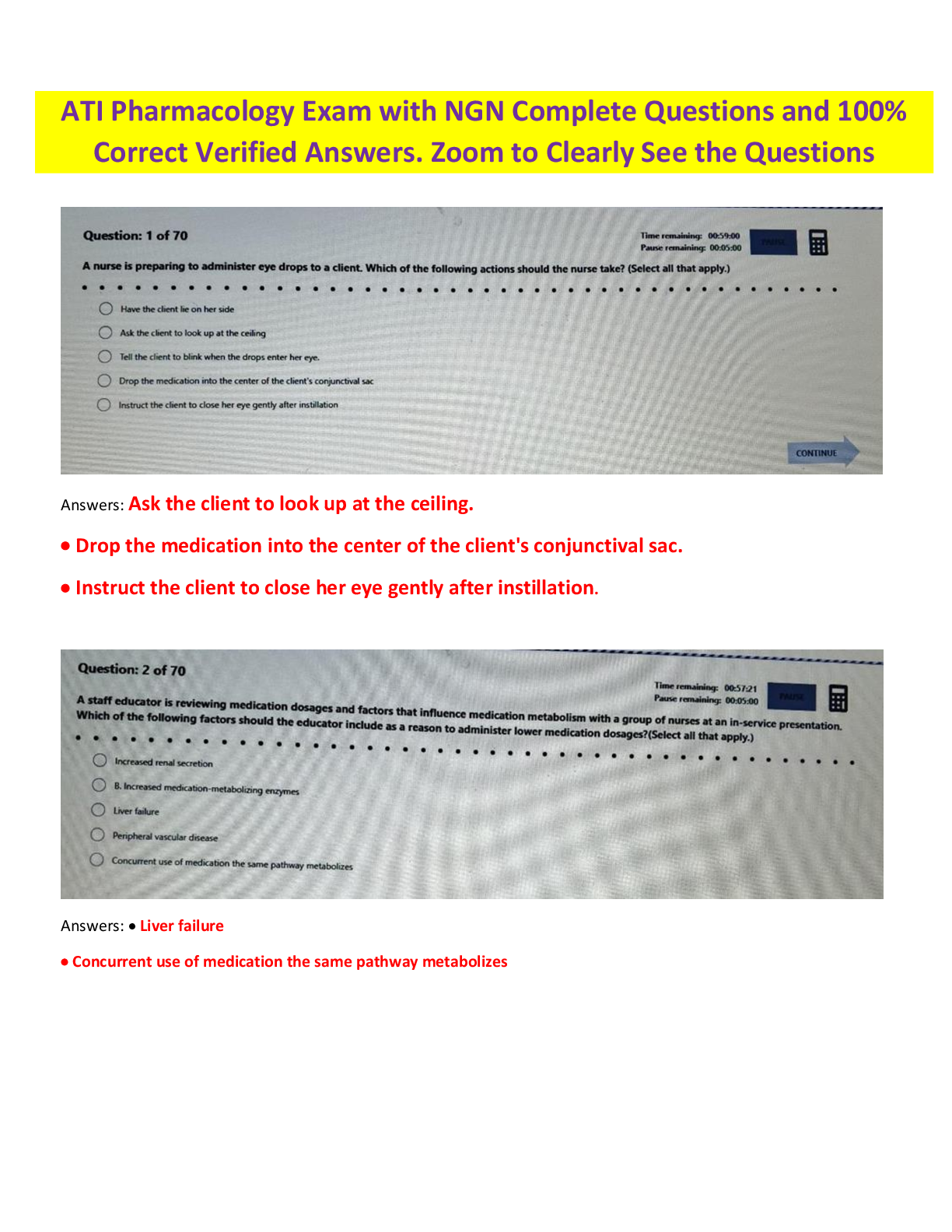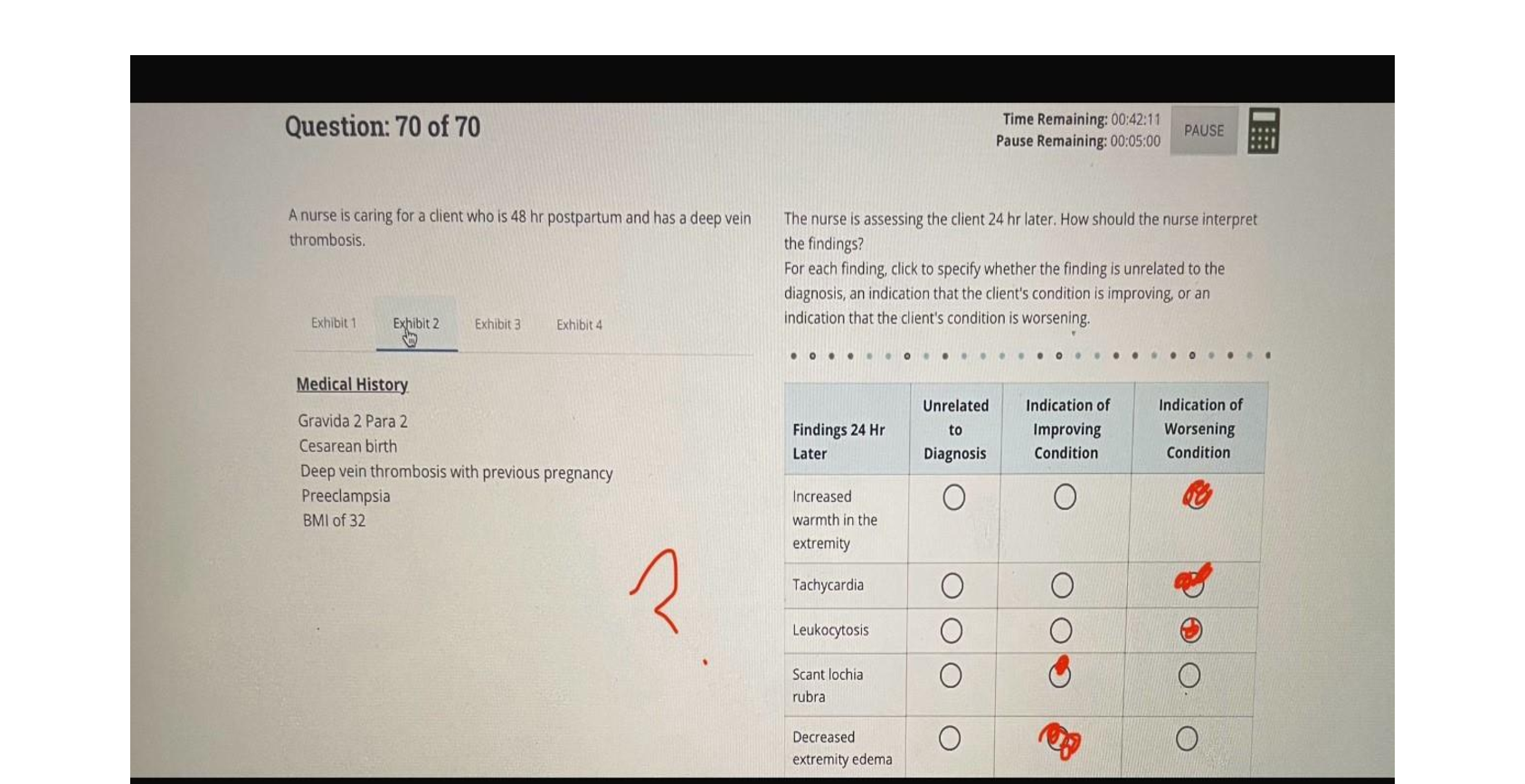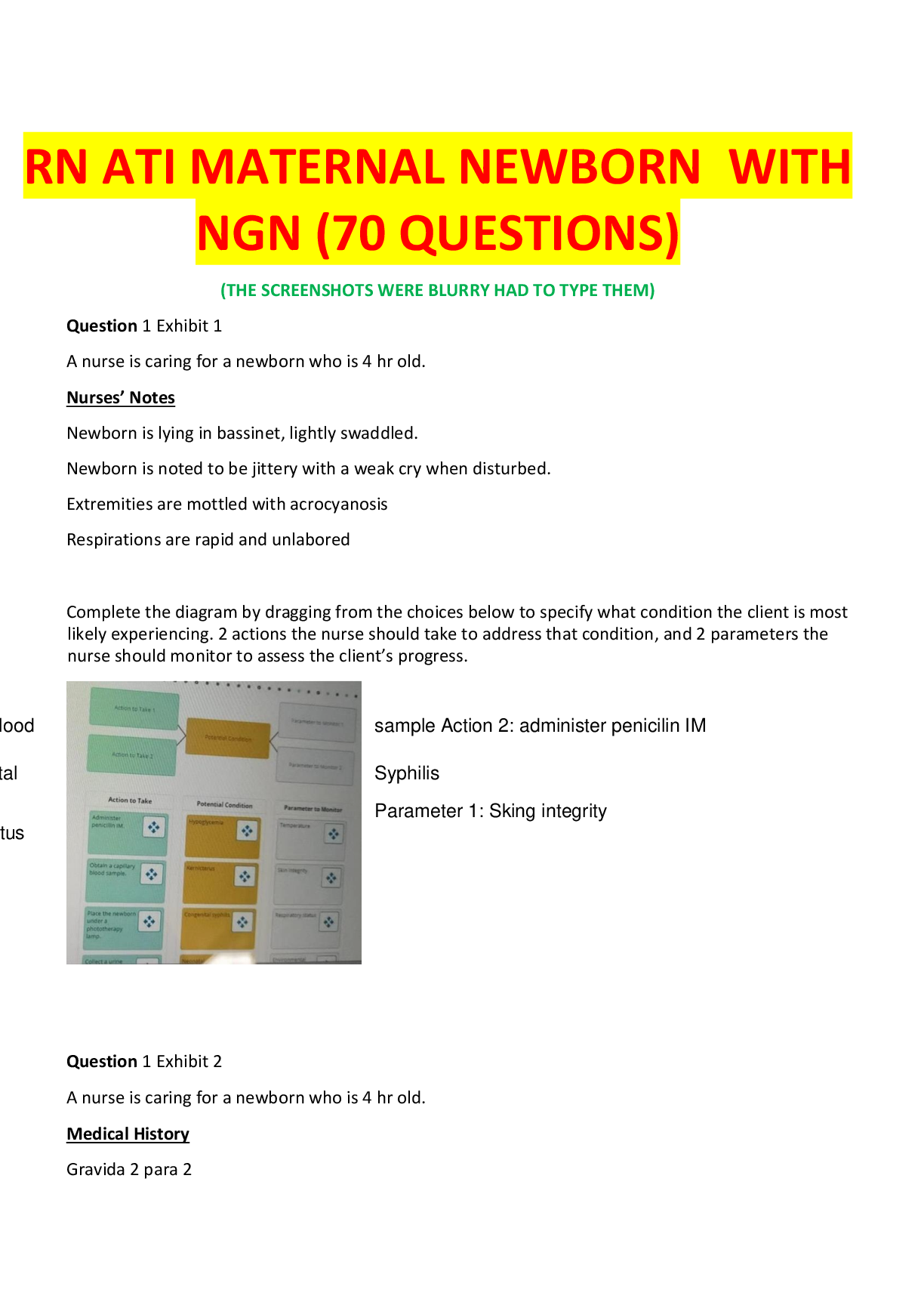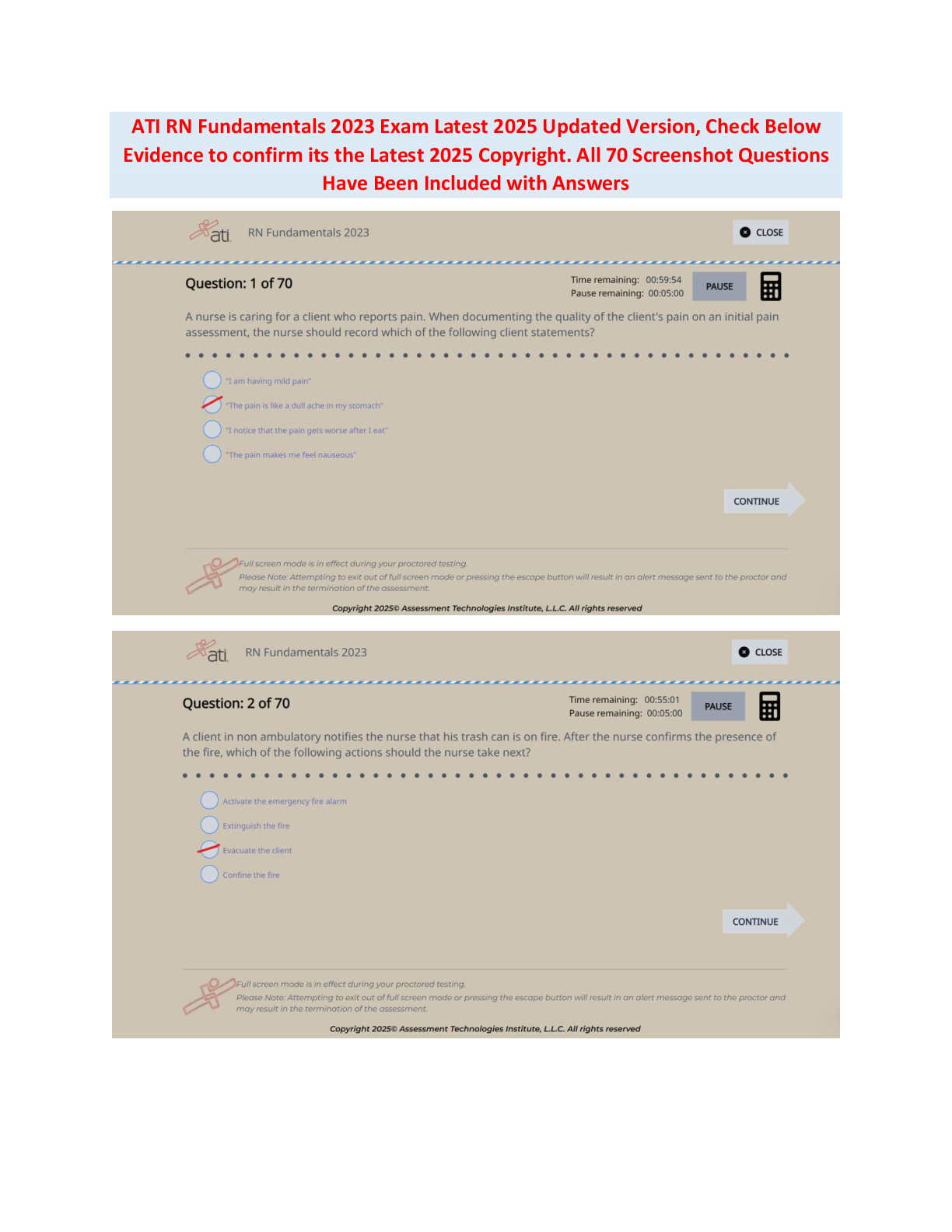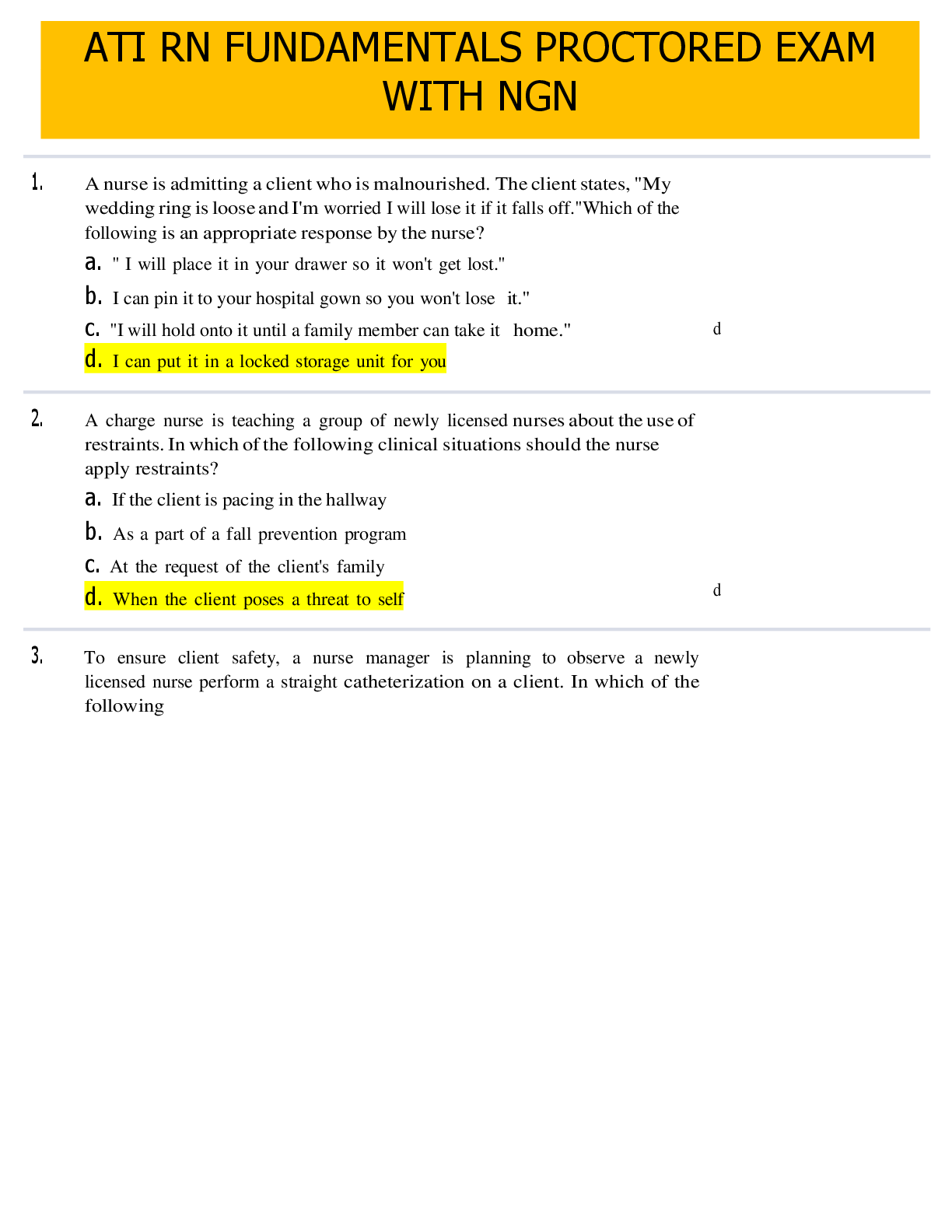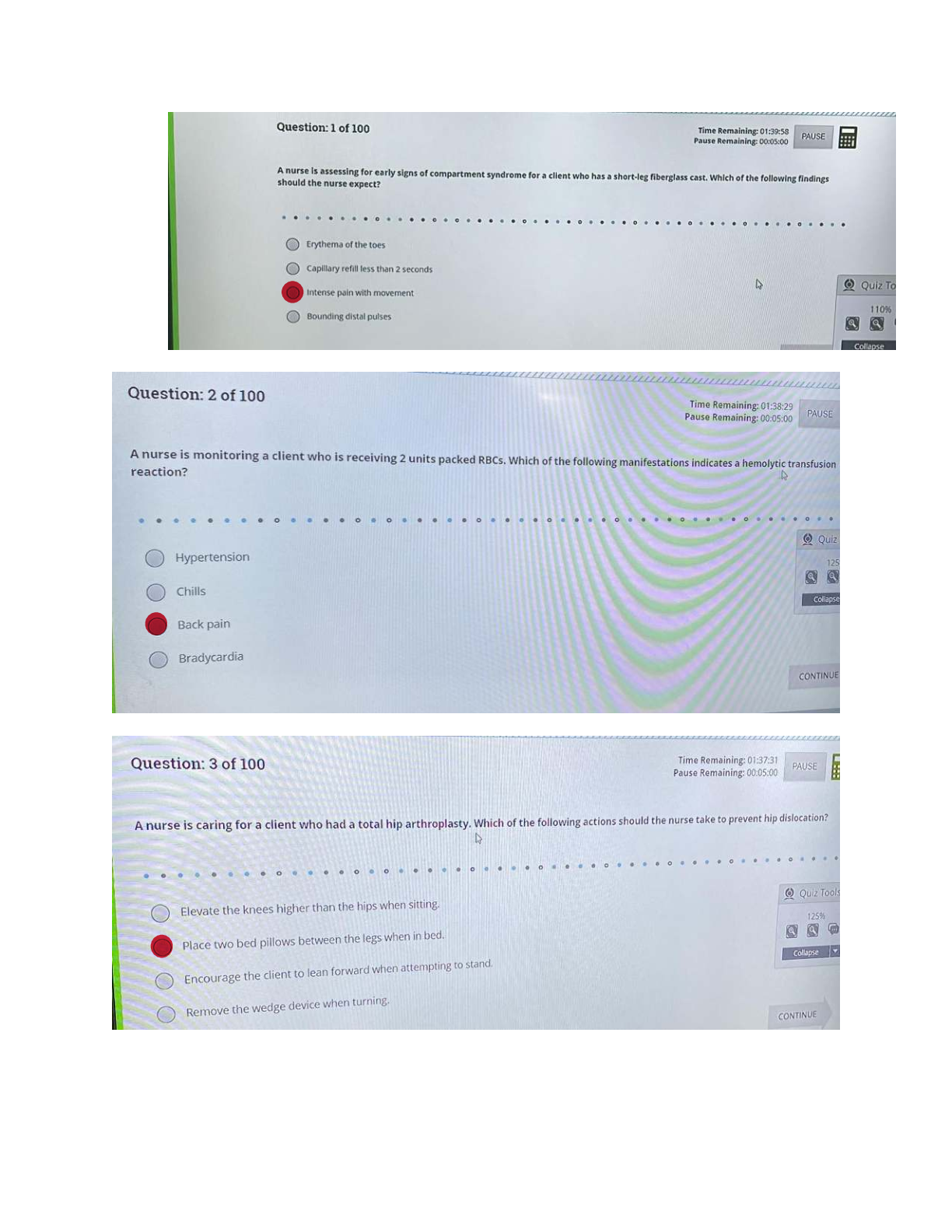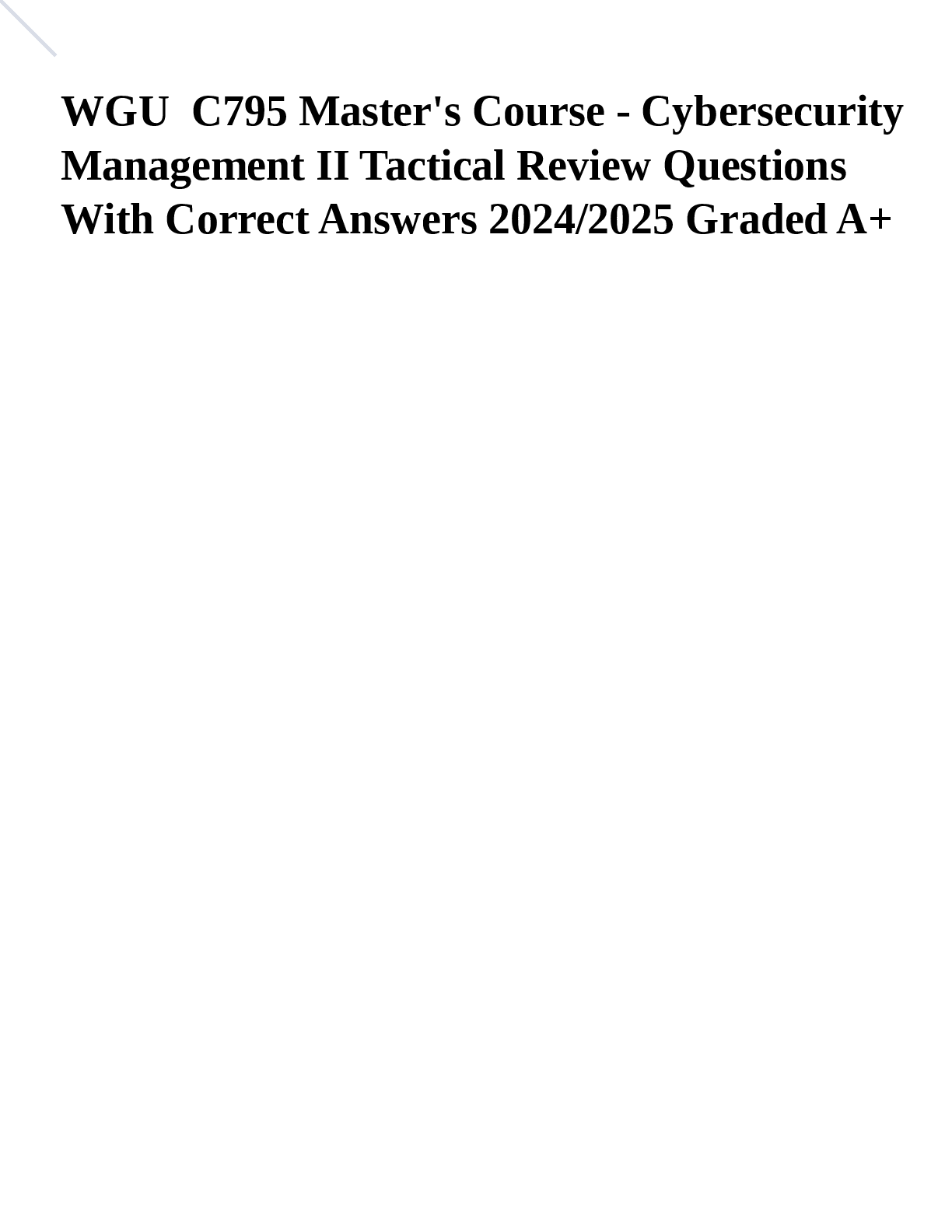ALAT Chapter 4 Practice Test questions with correct answers
Document Content and Description Below
What is the goal of an occupational health and safety program? a. To minimize the risk of occupational injuries for all employees b. To coordinate the resources of the organization c. To communic ... ate occupational goals and standards to employees d. To motivate and encourage employees a. To minimize the risk of occupational injuries for all employees Which federal agency in the U.S. is the main enforcer of rules or standards related to workplace safety? a. The Centers for Disease Control and Prevention (CDC) b. Bureau of Labor Statistics c. Equal Employment Opportunity Commission d. The Department of Labor's Occupational Safety and Health Administration (OSHA) d. The Department of Labor's Occupational Safety and Health Administration (OSHA) Which health surveillance procedure is particularly important in facilities housing nonhuman primates? a. Chest x-ray b. Hepatitis B vaccination c. Tuberculin skin test d. Rabies vaccination c. Tuberculin skin test Why should employees with pets in their home be particularly careful while working in the animal facility? a. To avoid introducing microorganisms into the laboratory animal colony b. To avoid becoming too attached to the animals in the studies c. To prevent exposure to radiation and radioactive waste d. To avoid picking up microorganisms on their clothing that could be spread to their pet(s) a. To avoid introducing microorganisms into the laboratory animal colony Which factor does NOT determine the type of PPE needed when working in the facility? a. Animal species b. Nature of the hazard c. Potential for exposure to harmful agents d. Skill and experience d. Skill and experience What does an eye wash station use to clean the eye? a. Clean water under high pressure b. Clean water under low pressure c. Ocular solution under low pressure d. Ocular solution under high pressure b. Clean water under low pressure What is radioactivity? a. A release of energy rays b. The science of radiant energy c. The science of diagnostic imaging d. The properties of attraction possessed by magnets a. A release of energy rays Which type of hazard causes musculoskeletal injuries? a. Radioactive b. Ergonomic c. Noise d. Chemical b. Ergonomic Which is NOT a way to reduce the chance of repetitive motion injuries? a. Resting b. Stretching c. Reducing repetitions d. Practicing the movements at home d. Practicing the movements at home What is the term for a disease that can be transmitted between animals and humans? a. Epidemic b. Virus c. Zoonosis d. Infectious hazard c. Zoonosis Which of these provide information on the toxicity of chemicals? a. Health screening results b. Material safety data sheets (MSDS) c. Standard operating procedures (SOPs) d. Disaster checklists b. Material safety data sheets (MSDS Whose standards specifically address the storage and handling of radioactive materials in the facility? a. Institute for Laboratory Animal Research b. Center for Disease Control c. Occupational Health and Safety Administration d. Nuclear Regulatory Commission d. Nuclear Regulatory Commission What type of injury can be prevented by taking frequent short breaks to rest and stretch the body? a. Repetitive motion b. Skin irritation c. Mechanical d. Animal bites a. Repetitive motion Which zoonosis is most commonly found among sheep, goats, and cattle? a. B virus b. Toxoplasmosis c. Q-fever d. Tuberculosis . c. Q-fever Which parasite can be transmitted to humans through the handling of cat feces? a. Entamoeba histolytica b. Giardia c. Balantidium coli d. Toxoplasma gondii d. Toxoplasma gondii Where is the most appropriate place to keep personal belongings such as coats, cell phones, and purses? a. In the locker room b. In the animal rooms c. In the procedure area d. In the break area a. In the locker room Puncture proof containers are used in the animal facility to dispose of which items? a. Dead animals b. Sharps c. Used PPE d. Expired feed b. Sharps What should you do to safely walk around in an animal room during the dark part of the light/dark cycle? a. Allow the eyes time to adjust b. Turn on the light while working in the room c. Use a flashlight to find a path d. Use night-vision goggles a. Allow the eyes time to adjust Shielding, time, and distance are the key factors for personal protection against: a. allergies. b. ergonomic injuries. c. radiation. d. mechanical injuries c. radiation. If you work with animals who are infected with biohazardous agents, you must be aware that: a. the animals' saliva, urine, and feces may contain dangerous microorganisms. b. you must have a monthly physical examination, including a chest x-ray. c. these animals cannot be group-housed. d. the animals will need a specialized diet and acidified water a. the animals' saliva, urine, and feces may contain dangerous microorganisms. Which is NOT a factor in personal protection against radiation? a. Shielding b. Time c. Distance d. Motion d. Motion [Show More]
Last updated: 3 years ago
Preview 1 out of 5 pages
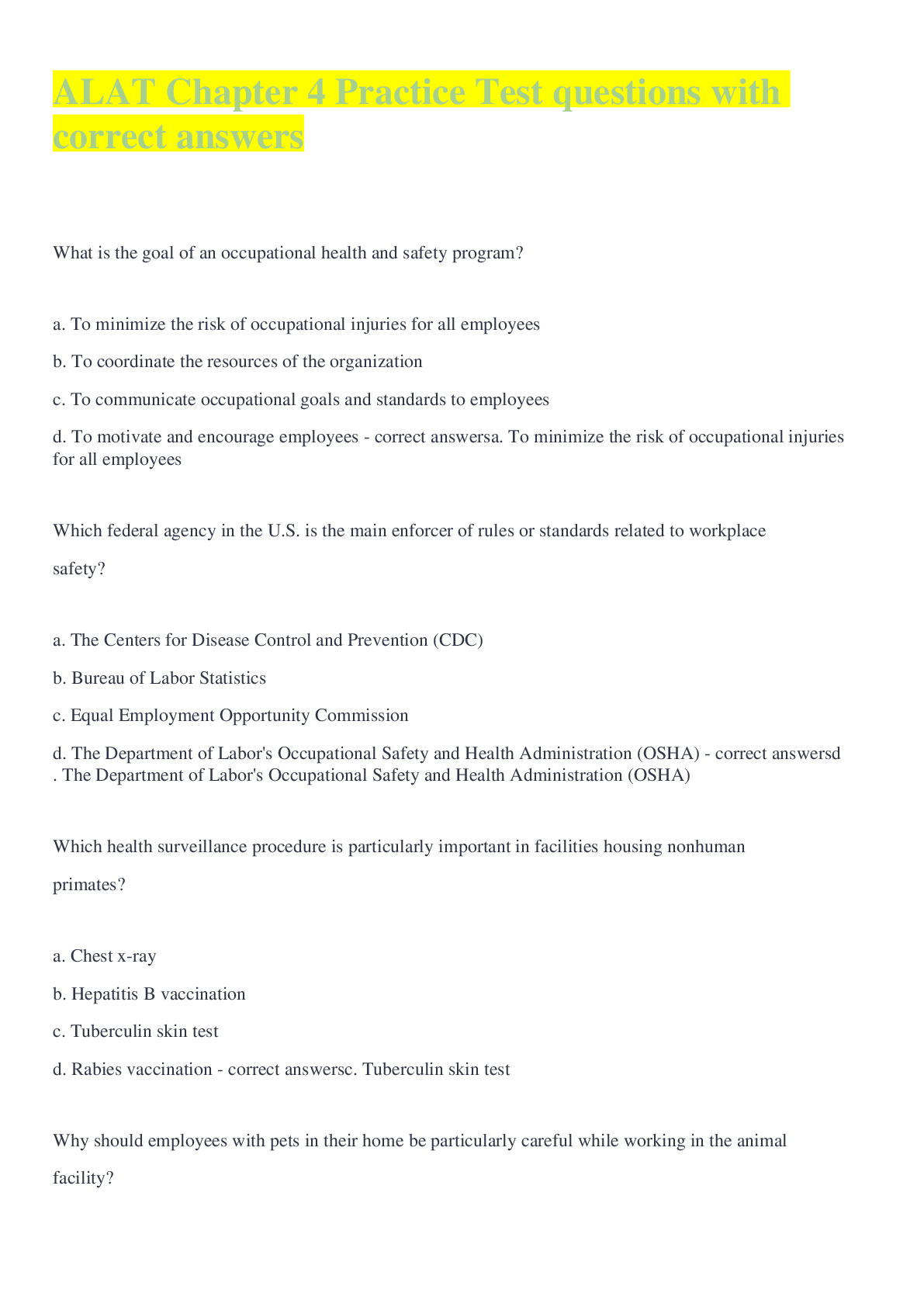
Buy this document to get the full access instantly
Instant Download Access after purchase
Buy NowInstant download
We Accept:

Reviews( 0 )
$13.00
Can't find what you want? Try our AI powered Search
Document information
Connected school, study & course
About the document
Uploaded On
Nov 17, 2022
Number of pages
5
Written in
All
Additional information
This document has been written for:
Uploaded
Nov 17, 2022
Downloads
0
Views
51

